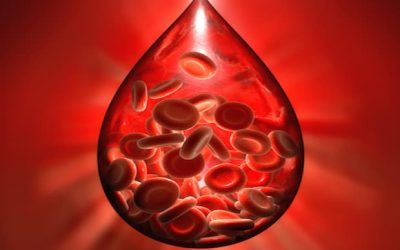The European Medicines Agency’s (EMA) latest human medicines committee (CHMP) decisions have been announced, including recommendations for three medicines and one rejection for a marketing authorisation.
The Committee supported granting a marketing authorisation for La Jolla’s Giapreza (angiotensin II) for the treatment of refractory hypotension in adults with septic or other distributive shock.
Two informed consent applications also received a positive opinion from the CHMP: Celgene’s Azacitidine (azacitidine), for the treatment of myelodysplastic syndromes, chronic myelomonocytic leukaemia and acute myeloid leukaemia; and UCB’s Lacosamide (lacosamide), for the treatment of partial-onset seizures with or without secondary generalisation.
An informed consent application makes use of data from the dossier of a previously authorised medicine, with the marketing authorisation holder of that medicine giving consent for the use of their data in the application.
The decision-making group, however, gave a negative opinion for Amgen’s osteoporosis drug, Evenity (romosozumab). The rejection brings the CHMP’s rejection total to four for 2019.
While Evenity was considered effective in reducing the risk of fracture in patients with severe osteoporosis, the Agency said it was concerned because data suggest that patients given the drug had an increased risk of serious effects on the heart or circulatory system, such as heart attacks or strokes. In addition, when all the data were looked at together, there were more deaths in patients aged over 75 years given the medicine.
As it was unclear why the medicine appeared to increase the risk of heart and circulatory problems, and there was no obvious group of patients in whom the risk of these was lower, measures to reduce the risk could not readily be put in place.
Meanwhile, new indications included a paediatric extension for Novo Nordisk’s type II diabetes medicine Victoza (liraglutide), but an extension of therapeutic indication for Novartis’ Revolade (eltrombopag) to add the treatment of previously untreated patients with severe aplastic anaemia from two years of age was rejected.
AstraZeneca bagged a positive opinion to add a self-administration option for Fasenra (benralizumab), and a new delivery method as a pre-filled, single-use auto-injector (the Fasenra pen).
The company also had a recommendation for a change to the European marketing authorisation for Forxiga (dapagliflozin) in patients with type II diabetes to include cardiovascular outcomes.
A negative opinion was also adopted for an extension of the therapeutic indication of PTC’s Translarna (ataluren) to add the treatment of patients with Duchenne muscular dystrophy who are no longer able to walk.
A positive opinion was adopted for Sanofi’s Dupixent (dupilumab), with the Committee recommending extending its approval in the EU to also include adolescents 12 to 17 years of age with moderate-to-severe atopic dermatitis, who are candidates for systemic therapy.
AbbVie/Johnson & Johnson’s Imbruvica (ibrutinib) use was extended to include adult patients with previously untreated chronic lymphocytic leukaemia (CLL), when in combination with obinutuzumab.
Other extensions of indication recommended were for Cyramza, Ebymect, Edistride, Fiasp, Flebogamma DIF, Tecentriq, Xigduo and Zinforo.
The Committee also announced the start of re-examination of recommendation for Xyndari (glutamine), as the applicant requested a re-examination of the negative opinion adopted at the May 2019 meeting. The CHMP will now re-examine the opinion and issue a final recommendation.
The agenda of the June 2019 meeting is published on EMA’s website, and the minutes of the May 2019 CHMP meeting will be published in the coming weeks.









